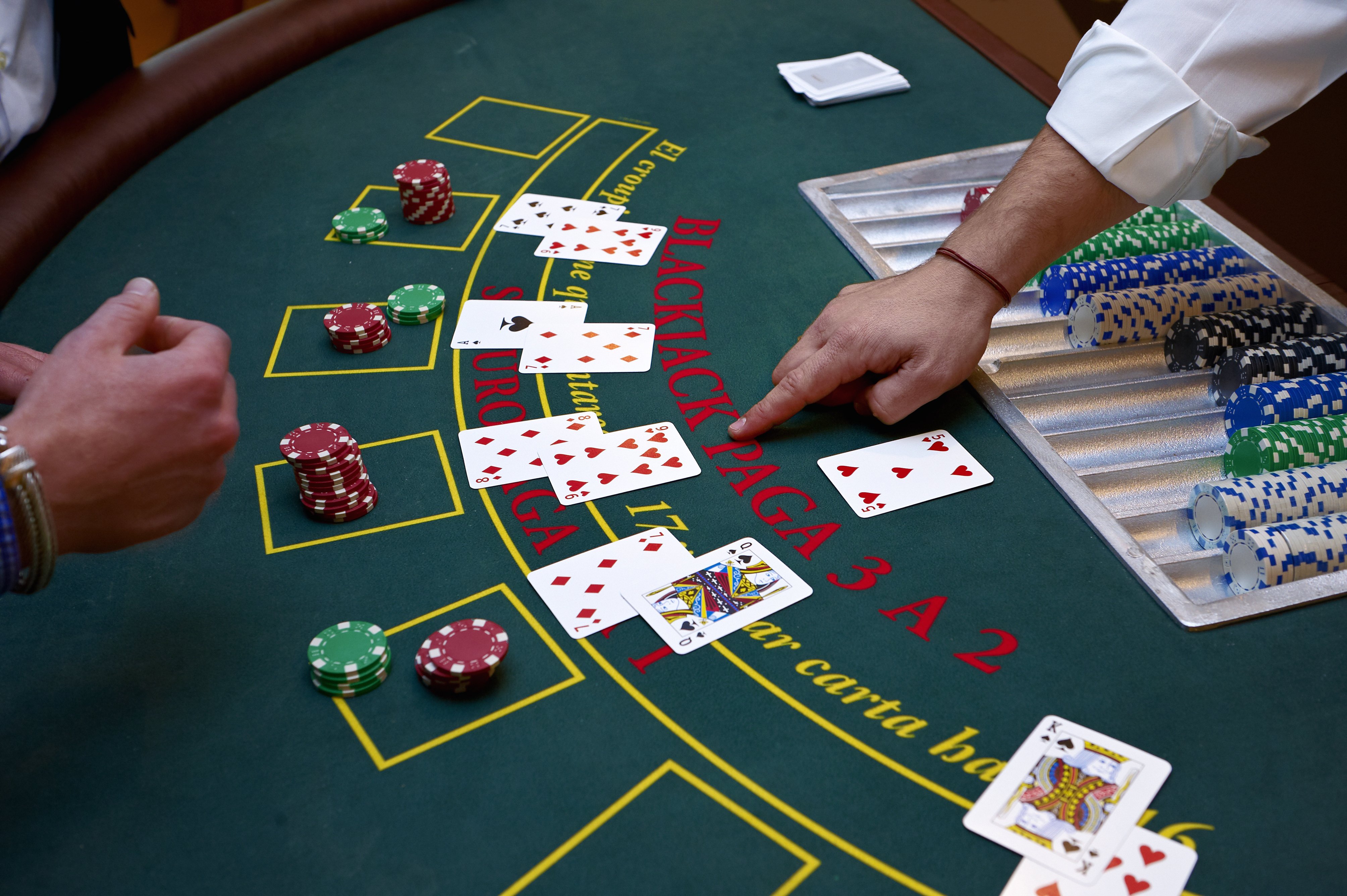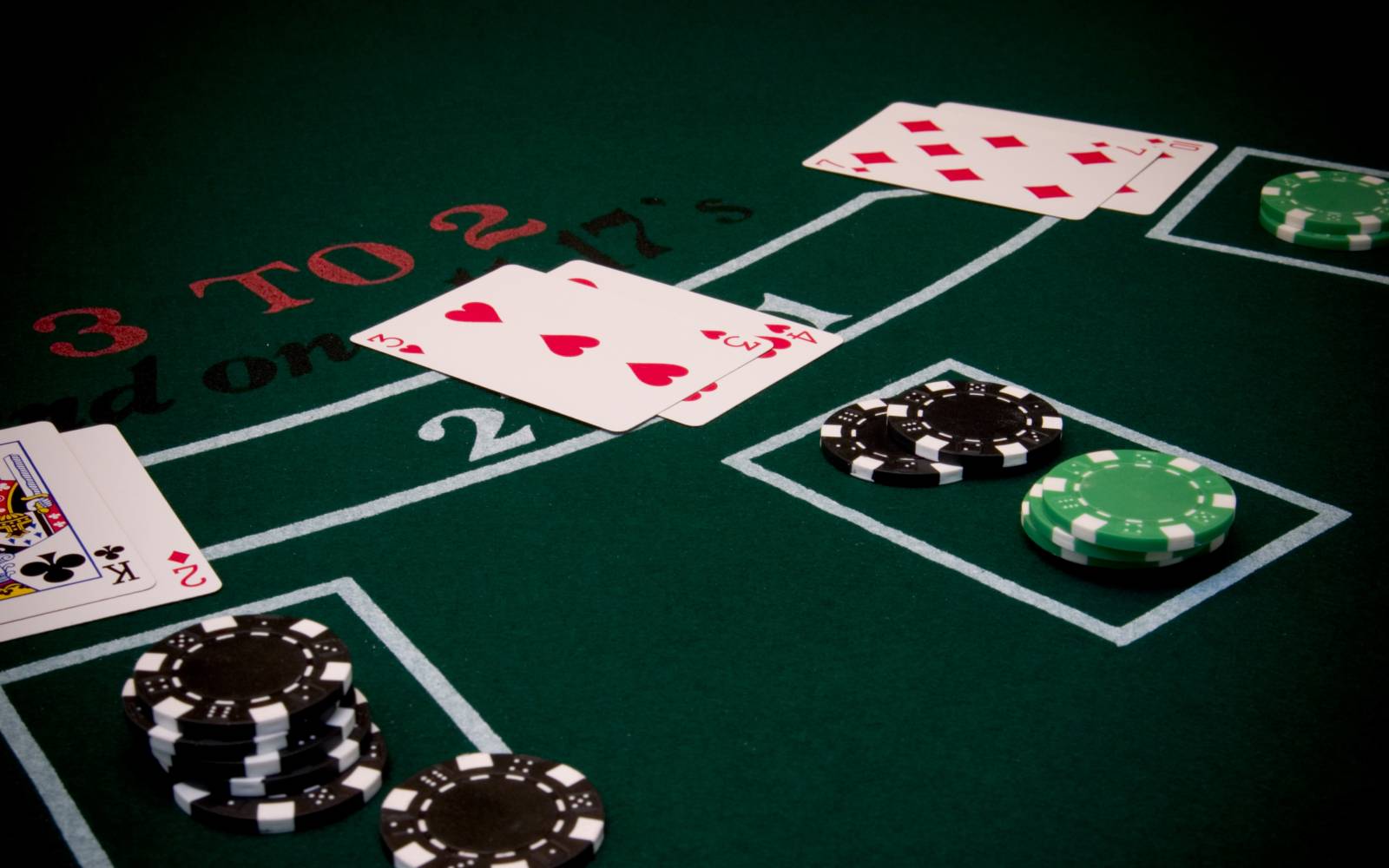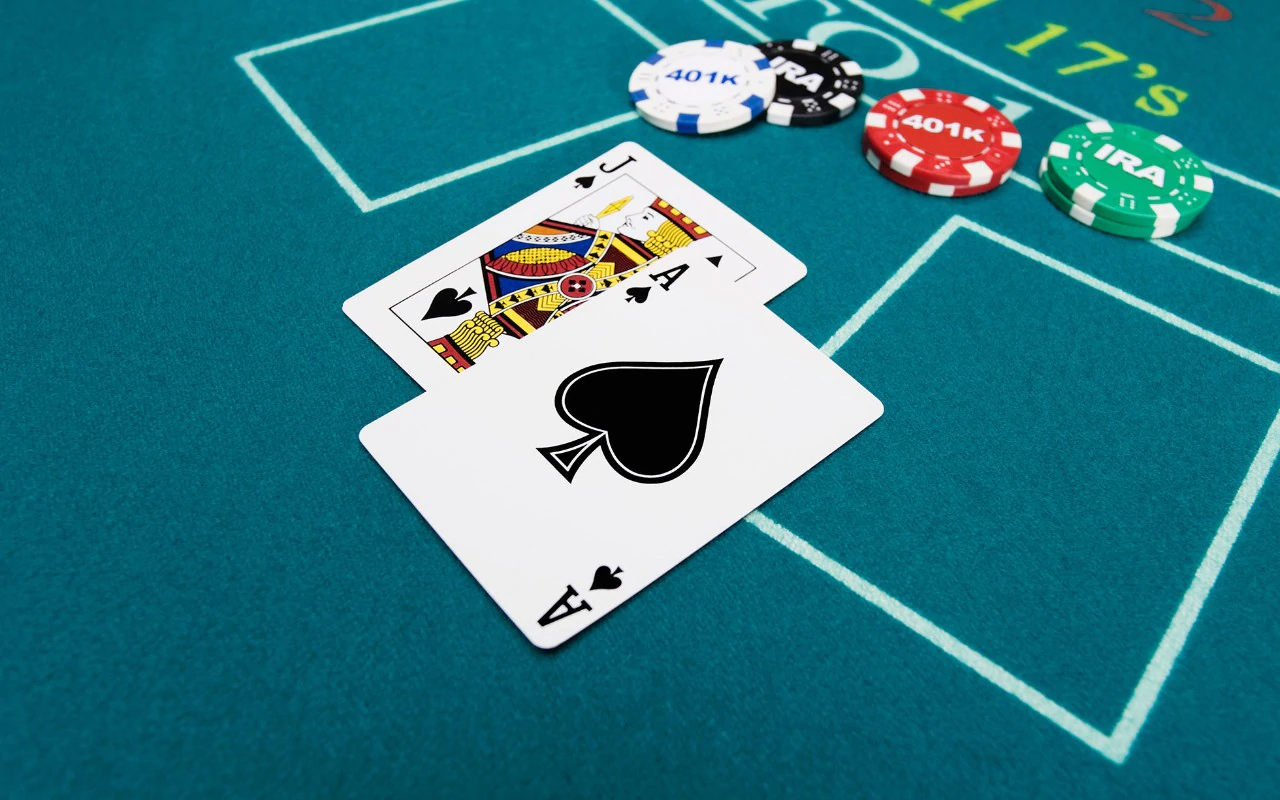Introduction
When Should You Double Down In Blackjack: In the exhilarating game of blackjack, knowing when to double down can be a crucial strategy that can significantly impact your chances of success. Doubling down is a powerful move that allows players to increase their bet after receiving their initial two cards. By doubling down, players commit to taking only one more card, effectively putting more money on the line in the hope of improving their hand.
We explore the art of doubling down in blackjack game, delving into the key moments when this strategy can be most advantageous. Understanding the rules and nuances of doubling down enables players to make informed decisions, enhancing their overall blackjack experience and potentially boosting their winnings.
The decision to double down should not be made haphazardly; rather, it should be based on a careful assessment of the player’s hand and the dealer’s up-card. Knowing when to double down on specific totals, such as 9, 10, and 11, can make a significant difference in the game’s outcome.
Join us as we unravel the secrets of when to double down in blackjack, exploring the scenarios where this bold move can maximize your chances of beating the dealer. Armed with this knowledge, you can approach the blackjack table with confidence, making strategic decisions and taking advantage of favorable opportunities to double down and seize victory.

Should you always double down on 11?
Avoid putting the new chips on top of the initial amount as this can be seen as tampering with your bet. Remember, your double down bet must always match your initial bet amount. For most people, particularly those who are newer to blackjack, it’s almost always a good idea to double down when you are showing an 11.
Doubling down on 11 in blackjack is a popular and advantageous play, but whether you should always do it depends on the specific rules and the dealer’s face-up card. In most blackjack games, doubling down on 11 is recommended, as it presents a strong likelihood of improving your hand and increasing your chances of winning.
When you have a total of 11, it means you have a strong starting hand. You are hoping to draw a 10-value card (10, Jack, Queen, or King) to make a total of 21, which is the best possible hand in blackjack. Since there are four 10-value cards for every 13 cards in the deck, the odds of getting a 10-value card are in your favor.
However, there are some situations where doubling down on 11 may not be ideal. If the dealer’s face-up card is an Ace, some players may choose not to double down because of the risk of the dealer having a natural blackjack (21). In such cases, hitting your 11 against the dealer’s Ace may be a safer option.
Ultimately, the decision to double down on 11 should be based on the specific blackjack rules, the number of decks in play, and the dealer’s face-up card. When the circumstances are favorable, doubling down on 11 can be a powerful strategy to increase your potential winnings. However, like any blackjack decision, it’s essential to consider the odds and make informed choices based on the specific game situation.
Should you always double down on 10?
Should you double down on 10? Once again, this really depends on the card the dealer is showing. If they have an ace or a 10-value card, you might not want to double down, as there’s a real chance that they could get a nice hand and easily beat you. If they’re showing a 6 or lower, doubling down is a feasible option.
Doubling down on a total of 10 in blackjack is a strong play, but whether you should always do it depends on the specific rules of the game and the dealer’s face-up card. In most blackjack games, doubling down on 10 is recommended in certain situations, as it offers a favorable opportunity to maximize potential winnings.
When you have a total of 10, it means you have a solid starting hand. You are hoping to draw a 10-value card (10, Jack, Queen, or King) to make a total of 20, which is a strong hand in blackjack. Since there are four 10-value cards for every 13 cards in the deck, the odds of getting a 10-value card are in your favor.
However, doubling down on 10 should be carefully considered based on the dealer’s face-up card. If the dealer’s card is a 10-value card or an Ace, doubling down may not be as advantageous. This is because the dealer has a higher chance of having a strong hand, like 20 or blackjack, which could put you at a disadvantage.
In general, doubling down on 10 is a good strategy when the dealer’s face-up card is 2 through 9. In this scenario, the dealer has a weaker starting hand, increasing your chances of winning with a doubled bet. However, if the dealer’s card is strong, it may be wiser to avoid doubling down and instead consider other options like hitting or standing.
Ultimately, the decision to double down on 10 should be based on the specific blackjack rules, the number of decks in play, and the dealer’s face-up card. Understanding the odds and considering the potential outcomes will help you make informed choices and play blackjack more strategically.
What are the rules for doubling down in blackjack?
On your original two cards, you can double your bet before the dealer gives you another card. You place another bet equal to the first. Then, the dealer will give you only one card The dealer settles all bets at the end of the hand.
The rules for doubling down in blackjack may vary slightly depending on the specific casino or blackjack variant, but the fundamental principles remain consistent in most games. Here are the general rules for doubling down in blackjack:
1. Total of 9, 10, or 11: Players can double down on any two-card hand totaling 9, 10, or 11. This means they can place an additional bet equal to their original wager and receive only one more card.
2. Doubling after splitting (DAS): In some games, players are allowed to double down after splitting a pair. For example, if you split a pair of 8s and receive another 8 on one of the split hands, you can choose to double down on that hand.
3. Dealer’s face-up card: The rules for doubling down may be influenced by the dealer’s face-up card. In most cases, you can double down when the dealer’s card is 2 through 9. However, some casinos may restrict doubling down if the dealer’s card is an Ace or a 10-value card.
4. Additional bet: When you choose to double down, you must place an additional bet equal to your original wager. This effectively doubles your bet for that particular hand.
5. One more card: After placing the additional bet, you will receive one more card to complete your hand. Once the card is dealt, your hand is finalized, and the dealer moves on to the next player.
Do you double on every 11 in blackjack?
If the dealer shows a lower card than a 10, it is a good strategy to double down. If the casino rules dictate the dealer must hit soft 17, you should always double down on 11 no matter what the dealer’s up card.
Doubling down on every 11 in blackjack is not a recommended strategy. While a total of 11 is a strong starting hand in blackjack, whether you should double down or not depends on the dealer’s face-up card and the specific rules of the game.
In most blackjack games, doubling down on 11 is generally advisable when the dealer’s face-up card is 2 through 10. The reason for this is that the odds of getting a 10-value card (10, Jack, Queen, or King) to make a total of 21 are in your favor. With four 10-value cards for every 13 cards in the deck, the probability of drawing a 10 is relatively high.
However, there are exceptions when you should avoid doubling down on 11. If the dealer’s face-up card is an Ace, doubling down might not be as favorable. This is because the dealer could potentially have a blackjack (a total of 21), and doubling down could lead to a higher risk of losing both bets.
It’s essential to consider the specific rules of the game and the dealer’s card before making a decision to double down on 11. Understanding the odds and probabilities associated with doubling down will help you make more informed choices and play blackjack more strategically.

What are the rules for doubling down in blackjack?
On your original two cards, you can double your bet before the dealer gives you another card. You place another bet equal to the first. Then, the dealer will give you only one card The dealer settles all bets at the end of the hand.
In some blackjack variants, there may be additional rules or variations regarding doubling down. Here are a few examples:
1. Double down on any total: In some games, players are allowed to double down on any two-card total, not just 9, 10, or 11. This means players can double down on hands like 8 or 12 if they choose to do so.
2. Double down for less: Some casinos permit players to double down for less than their original bet. For instance, if you initially wager $10, you can choose to double down for $5 instead of the full $10.
3. No double after splitting aces (NDA): In certain games, if you split a pair of Aces, you may be restricted from doubling down on the resulting hands. This rule is known as “No double after splitting aces.”
4. Double down rescue: Some casinos offer a “double down rescue” option, allowing players to surrender their initial double down bet after seeing the dealer’s hole card. This can be advantageous if the dealer has a strong hand.
5. Multiple doubling downs: In rare cases, some casinos allow players to double down more than once on the same hand. For example, after doubling down on an initial total of 10, if you receive another 10, you may be allowed to double down again.
It’s essential to be aware of these variations in rules and how they can affect your strategy. Always check the specific rules of the blackjack game you’re playing to understand the doubling down options available and make informed decisions accordingly. Understanding the different rules for doubling down will allow you to adapt your strategy and maximize your chances of success at the blackjack table.
When is it advantageous to double down in blackjack?
Doubling down in blackjack is advantageous in specific situations where the player has a strong starting hand and the dealer’s up-card is weak. The key moments to consider doubling down are when the player’s total is 9, 10, or 11.
When the player’s total is 9, doubling down is favorable when the dealer’s up-card is 3, 4, 5, or 6. The player has a good chance of improving their hand and making a strong total of 19 or 20, while the dealer is likely to bust with a weak up-card.
For a total of 10, doubling down is advantageous against a dealer’s up-card of 2, 3, 4, 5, 6, 7, 8, or 9. With a total of 10, the player is just one card away from a powerful total of 20, and the dealer is again at risk of busting with a weak up-card.
When the player’s total is 11, doubling down is highly advantageous regardless of the dealer’s up-card. A total of 11 offers an excellent opportunity to draw a 10-value card and achieve the best possible hand, 21.
However, it’s crucial to exercise caution when doubling down. Doubling down against a dealer’s strong up-card (Ace or 10) is risky, as the dealer could have a strong hand, and doubling down may lead to a higher likelihood of losing both bets.
Ultimately, doubling down in blackjack should be done selectively and based on the specific game situation. When executed strategically, doubling down can be a powerful tool to enhance the player’s chances of winning and maximizing their potential returns in the game.
What are the key moments to consider doubling down in blackjack?
The key moments to consider doubling down in blackjack are when the player’s initial two-card hand totals 9, 10, or 11. These totals present favorable opportunities for doubling down due to the higher probability of drawing a 10-value card, which would lead to strong hands like 19, 20, or the coveted total of 21.
1. Total of 9: Doubling down on a total of 9 is advantageous when the dealer’s up-card is weak, specifically showing a 3, 4, 5, or 6. In these instances, the player has a good chance of improving their hand to a powerful 19 or 20, while the dealer has a higher risk of busting with a weak up-card.
2. Total of 10: With a total of 10, doubling down is favorable against a dealer’s up-card of 2, 3, 4, 5, 6, 7, 8, or 9. Doubling down on 10 allows the player to potentially reach the strong total of 20, providing a substantial advantage over the dealer’s weaker up-cards.
3. Total of 11: Doubling down on a total of 11 is highly advantageous in all situations, regardless of the dealer’s up-card. This is because the player is just one card away from achieving the best possible hand, 21. The chances of drawing a 10-value card are significant, making doubling down on 11 a powerful and strategic move.
How does the dealer’s up-card influence the decision to double down in blackjack?
The dealer’s up-card is a crucial factor that significantly influences the decision to double down in blackjack. It plays a pivotal role in determining the player’s potential of beating the dealer and winning the hand. The player’s decision to double down should be based on the comparison of their hand’s total to the dealer’s up-card.
When the player’s total is 9, the decision to double down is favorable when the dealer’s up-card is weak, specifically showing a 3, 4, 5, or 6. In such cases, the player has a good chance of improving their hand to a powerful total of 19 or 20, while the dealer is more likely to bust with a weak up-card.
For a total of 10, doubling down becomes advantageous against a dealer’s up-card of 2, 3, 4, 5, 6, 7, 8, or 9. The player’s total of 10 leaves them just one card away from the strong hand of 20, and the dealer’s weak up-cards provide an opportunity to capitalize on this advantage.
In contrast, when the player’s total is 11, the decision to double down is highly advantageous regardless of the dealer’s up-card. With a total of 11, the player is just one card away from the best possible hand, 21. The likelihood of drawing a 10-value card is high, making doubling down on 11 a powerful and strategic move.
On the other hand, doubling down against a dealer’s strong up-cards, such as an Ace or a 10, is riskier. The dealer could potentially have a strong hand, like a natural blackjack (total of 21), making it more challenging for the player to win the hand.

Conclusion
Mastering the art of doubling down in blackjack is a vital skill that can give players a strategic edge in the game. Knowing when to double down can significantly impact the outcome of a hand and potentially lead to increased winnings.
The key moments to consider doubling down are when the player’s total is 9, 10, or 11. These are strong starting hands, and doubling down in these situations can be advantageous, especially when the dealer’s up-card is weak.
Doubling down on a total of 9 against a dealer’s weak up-card (2 to 6) can increase the player’s chances of making a strong hand and winning the round. Similarly, doubling down on 10 or 11 is favorable when the dealer’s up-card is anything but an Ace or a 10-value card.
However, players should approach doubling down with caution and consideration of the specific game rules and the dealer’s card. Doubling down against a dealer’s strong up-card (Ace or 10) may not be wise, as it increases the risk of losing both the original and additional bets.
Understanding when to double down requires a blend of skill, strategy, and risk assessment. It is crucial to be aware of the potential outcomes and odds associated with each decision. Players who can effectively utilize doubling down in strategic moments are better equipped to take on the challenges of the blackjack table and improve their chances of success.
Ultimately, the decision to double down should be based on the individual player’s comfort level and understanding of the game. By using this powerful strategy wisely and in conjunction with other blackjack tactics, players can elevate their gameplay and enjoy the excitement of blackjack to the fullest.










